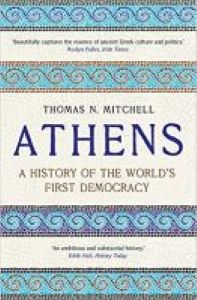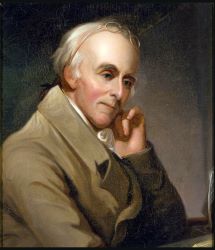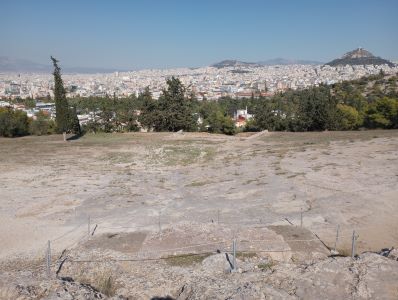Democracy II

On the development of mass and digital media, Mitchell's view is unfortunately conventional:
“When it comes to the availability of knowledge of current political issues and challenges, modern society has an advantage over Athenians. The rise of mass media, and especially digital media, had led to a knowledge revolution, and a vastly easier and wider access to information.”
This view has been accepted in the last couple decades especially in regards to the internet. At this point it’s plain to see without radically restructuring the technology and just as essentially the human organization around it, these ideas are nothing but a false premise. Instead of bringing together for democratic politics, information technology increasingly fosters greater separation, an endless feeding of established prejudice, ignorance, and misinformation, no matter the professed political identity.
Quantity of information in no way represents quality. In the biggest contrast to Athens, today, the ability for any individual to utilize, in any healthy effective way, the mass of information they encounter over a given day is an impossibility. Creating the structure and processes, collective associations to edit this information is the single greatest organizational challenge of any democratic revival. It is not a new concern, the technology however is without precedent.
Mitchell again states accepted conventional wisdom, “In modern society more of that knowledge will have to come through the educational system. Preparing young people for responsible citizenship should be a goal of education at every level.” There are two problems with this: first, the complete inadequacy of our entire contemporary education system; second, all that we now accept as an educational system is inadequate to meet the now life-long process of learning and interacting with an information rich environment.
Mitchell continues more helpfully,
“The ethos of civic engagement should be fostered by all the organs of state and by early involvement in local community activities. Athenian democracy drew strength from the vibrant community life of the demes.”
The 139 Athenian demes were the local political/government organizations much ignored by historians. The biggest reason for this absence is the happenings and decisions of the demes were little recorded. These were the daily participatory processes where politics were conducted; deliberations, choices by lot to send people up to the Council that set the agenda for the greater citizen Assembly, and similarly provide candidates for all magistrate offices. The demes laid the foundation for the education, communication, and decision making of Athenian democracy. Up from the demes came the much better documented debates and decisions of the greater Athenian Assembly.
The demes are a model for how any future democracy would look. In the 21st century such organizations, call them associations, first and foremost concern would be the creation, editing and communication of information. They would be participatory and distributedly, not centrally, networked. One of the greatest insights of the last century of science is the still developing understanding of distributed network order. It is a most revolutionary organizational idea.
Any future democracy necessitates recreating democratic politics, most importantly, creating participatory structures that allow each and every citizen involvement in the processes of issue deliberation and meaningful participation in shaping resulting actions.
Life in the 21st Century is a reader-supported publication. If you can, please become a paid subscriber.
A half-century ago, the historically essential and classically learned democratic thinker Hannah Arendt pointed out one of the original sins of the American system was the failure to institute participatory processes and organization. Arendt understood the original democratic organizational structures of revolutionary America were the multitude of townhalls spread across the colonial landscape. In On Revolution, she sublimely writes of America's great democratic failing,
“It was precisely because of the enormous weight of the Constitution and of the experiences in founding a new body politic that the failure to incorporate the townships and the townhall meetings, the original springs of all political activity in the country, amounted to a death sentence for them. Paradoxical as it may sound, it was in fact under the impact of the Revolution that the revolutionary spirit in America began to wither away, and it was the Constitution itself, this greatest achievement of the American people, which eventually cheated them of their proudest possession.”
She adds,
“The Constitution itself provided a public space only for the representatives of the people, and not for the people themselves.”
This was not unknown to the founders. Benjamin Rush of Pennsylvania stated, “All power is derived from the people, they possess it only on the days of their elections. After this it is the property of their rulers.” With the capture and corruption of today’s elections process, the people no longer hold power even on those days.

Any thinking on the revival of democracy requires a rethinking of politics itself, the word has become so degraded most consider anything political an insult. If you look at many elected officials it is. Politics, as Aristotle correctly noted, is the very foundation of what it is to be human. Like breathing, it is part of us all and largely, equally distributed. Mitchell astutely writes,
“Political judgement and wisdom are elusive qualities. They undoubtedly require a base of knowledge and experience but are mostly gifts of nature. Good judgement, being able to see the the right course – what Thucydides called gnome, and considered the special attribute of Pericles – though it certainly needs a level of political knowledge, is not a necessary consequence of advanced education or any form of specialized learning. Great intellectuals do not necessarily make great politicians. It is not possible to say that political wisdom is the preserve of any social class or group of specialists. It is a quality that, to an extant, is within the grasp of everyone.”
These observations I discovered fairly quickly in my political experience. A more learned, quicker intellect in no way represents political ability. Indeed, it's simply amazing how often a person most would consider smart was a political knucklehead. At the same time, I experienced innumerable occasions where people most wouldn't consider in anyway exceptional offer astute and cutting political analysis.
Arendt wrote of the party system that had developed by mid-20th century in America and all other modern republics, “It is in mature party systems that the authentically political talents can assert themselves only in rare cases.” Today in America’s political brand system, politics is tragically devoid of political talent.
Across my life, I've met or observed only a handful of truly exceptional political talents. Few enough that I concluded long ago it would be impossible to devise a system better than democracy for these and all people's political talents to best be realized. The greatest quality shared by all political talents I've met or observed is they seek the opinions of others, across the widest spectrum possible. This is the fundamental nature of democracy. Recently, in ahistorical Tech circles, a supposedly innovative understanding promoted as the wisdom of crowds appeared. It is in truth the most ancient political wisdom. Mitchell writes,
“Even Aristotle, a great thinker but no great admirer of democracy, conceded that political wisdom was not the exclusive preserve of an elite, and that a plausible argument could be made for popular rule. He made it in his so-called summation theory, which held that, while each individual within the mass (hoi polloi) may not have superior excellence, everyone has a share in goodness and practical wisdom (phronesis), and can contribute something, and the sum of these contributions makes the collective judgement of the many more likely to be right than that of the more expert few.”
This is in diametric opposition to our specialized intellectual culture's celebration of experts as always providing the greatest insight. It is an unsophisticated faith in the judgement of established authority and in this era of rapid technology innovation simple know-how providing the best or even correct guidance in deciding if gained knowledge should be implemented, and if so, how.
We have a lot to relearn from Athens. Mitchell's book, like the still visible speakers' rostrum on the Pnyx of Athens, stands as reminder something valuable and unique was innovated here. It reminds us oligarchy is not new, similar situations have been faced across history and in response to one instance, democracy first arose. Mitchell concludes his history of the world’s first democracy,
“It did go from the unequal, divided world of Solon, ruled by an entrenched, oppressive, faction ridden elite, to a society governed by an agreed code of law, which recognized the equal intrinsic worth of every citizen, and the rights of every citizen to an equal voice in deciding the public good. Athens remains a striking and valuable example of how a socially divided, unstable oligarchic society can radically transform itself and live by new values of freedom and equality and popular government under a strictly enforced rule of law.”


